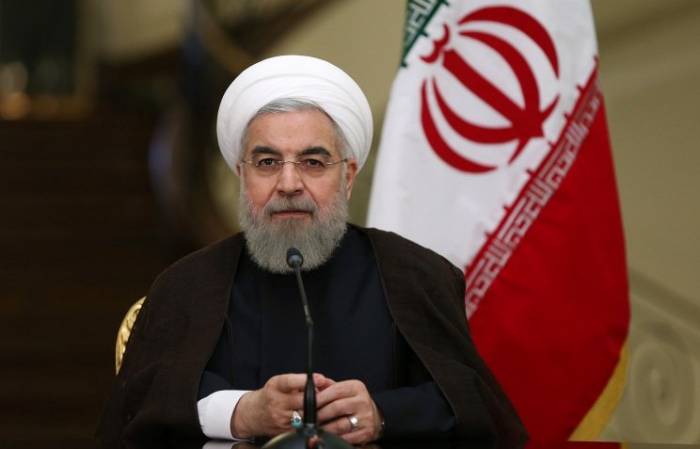Iran this weekend has begun easing a nationwide shutdown and resuming what it described as “low-risk” economic activities despite the effects of a coronavirus pandemic that continues to kill scores and infect hundreds a day.
Iran, the country worst hit by the pandemic in the Middle East, has removed restrictions on travel between provinces in place since 27 March and begun rolling out a programme to allow businesses to reopen.
The loosening of restrictions comes despite publicly voiced worries by a leading health ministry official, who warned that more than a quarter of coronavirus transmissions in Iran have been traced to contact on public transportation as people head to their jobs, regardless of how much social distancing is possible within workplaces.
But Iran’s president Hassan Rouhani insists the country is ready to begin resuming economic activity, boasting that the country was handling the impact of the disease better than some European countries.
"There is a very big difference between the situation in Iran and Europe," Mr Rouhani said in a televised address on Sunday. “Our situation in combating this dangerous virus is relatively good, and in comparison with others, it is better.”
With 71,686 coronavirus confirmed infections and at least 4,474 deaths attributed to Covid-19, Iran has been the epicentre of the worldwide pandemic in the Middle East. For weeks it downplayed or denied the presence of the virus, which was first reported in China, a critical trade and political partner of the Islamic Republic.
But the virus soon spread to the upper echelons of the country’s political and religious elite. Hospitals became overwhelmed, with at least 50 doctors and nurses dying of Covid-19, and Iran wound up imposing a lockdown on much of public life.
The weeks-long shuttering of most businesses and government offices has badly battered the country’s economy, already weakened by low global oil prices and United States sanctions that punish firms and governments across the world for conducting any business with the country.
But the number of new infections has been trending downward in recent weeks, suggesting the outbreak was past its peak. Mr Rouhani announced Saturday that some unspecified businesses would be allowed to open this week and in the capital, Tehran, starting next week.
Neither Mr Rouhani nor others have specified what sectors of the economy would be open, though schools and universities would remain for now closed, and there is no suggestion the lucrative religious pilgrimage tourism that officials say exacerbate the spread of coronavirus would resume.
Mr Rouhani said any business or trade association that wanted to reopen should apply online to the Health Ministry and await a confirmation code that would allow it to resume. He also insisted that buses and trains be disinfected according to health ministry protocols.
Serious doubts persist about the official numbers of deaths and infections in Iran, which has been accused by both critics abroad and health workers inside the country of downplaying the severity of the healthcare emergency. Iran’s authoritarian leadership has a poor track record on transparency.
But healthcare workers inside Iran have told The Independent the numbers of infections and deaths are no longer accelerating, and that stringent social distancing measures and a shuttering of public life appear to have eased loads in emergency rooms and intensive care units.
Asked about reopening the economy, Iran’s deputy health minister Iraj Harirchi cautioned that the government’s plan was a “cause for concern,” predicting that the crisis would continue until at least mid-May and that the illness would persist until the autumn.
“Early reopening, if it leads to a new shutdown, will have an even more devastating economic effect,” he said in a news conference on Saturday.
The Independent
More about: Iran
















































